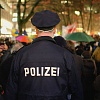Erdoğan’s Hubris?
In
Login if you are already registered
(no votes) |
(0 votes) |
In Turkey’s recent general election (7 June) its President, Recep Tayyip Erdoğan, hoped his AKP party to win 400 parliamentary seats; 330 were necessary to start a procedure of constitutional revision and modify the Constitution in a presidential sense. Yet Turkish voters thought otherwise and Erdoğan’s AKP garnered just 258 seats. Quite surprisingly, the leftist and pro-Kurdish HDP (People’s Democratic Party) obtained 80 seats and other two parties – the Republicans (CHP) and the Nationalists (MHP) – won together 212 seats. Now the AKP has to try to form a coalition government, which will not be easy, if we consider its often confrontational attitude throughout the election campaign.
It seems safe to say that Erdoğan is paying for his hubris before the elections and in the later years the AKP has spent in power. This hubris is not only represented by grandiose initiatives such as the building of a new presidential palace with 1,150 rooms (see http://www.bbc.co.uk/news/world-europe-29912398). Reality is Erdoğan has not realised Turkey is economically slowing down, and support for the AKP has been dropping for some time. In February unemployment peaked at 11.2% (The Economist) and growth for 2015 is forecast at 3%, which is not bad by EU standards, but far away from the rates of 8-9% Turkey enjoyed few years ago. This is time for reflection, not for ‘imperial’ projects. Many Turks feel the AKP has long been out of touch with socio-economic realities and this (partial) defeat is somewhat deserved. Turkey’s big business, as represented by the SabancI or Koç families, for instance, has probably had enough of unpredictable and grandiose foreign and economic policies. Turkey has played a dangerous and misguided role in Libya, Syria, and Egypt; it is having tensions with Israel; as a result of the attempt (to some extent also backed by the USA) to ‘export’ moderate Islamic parties to other countries, Turkey is now left without ambassadors in Egypt, Israel, Libya, and Syria, among others. In addition, Erdoğan has clashed with a society which remains largely secular, especially in the large urban centres of Ankara and Istanbul (the latter is now home to 14.4 million people and produces almost 30% of the country’s GDP).
Supporting moderate and democratic Islamic parties was a valuable idea, and in truth AKP leaders have often strongly denied the ‘confessional’ nature of the party, and instead highlighted its democratic and conservative ideology. Yet many Turkish voters have felt uncomfortable with the raising of the ban on wearing headscarves in universities, the construction of several new religious buildings, the introduction of some limitations to alcohol drinking, and other measures that have been introduced in recent years. More importantly, Turkey supported the ‘Arab Spring’, whose eventual outcomes have been civil war in Syria and Libya and the rise of ISIL. The Turkish model, which was often branded by Erdoğan as a solution for the Middle East and North Africa, has not been exported successfully. By contrast, Atatürk’s Turkey was conceived as a Muslim-majority country with a secular state, and this is the image of Turkey the recent elections convey to the world. The success of the HDP, a pro-Kurdish party with liberal and progressive views and a young, dynamic leader, Selahattin Demirtaş, tells a story of a modern and (in part) libertarian country. This kind of player can be much more helpful in stabilising the Middle East and putting an end to its appalling record of violence.
International observers have been positively surprised by Turkey’s display of democracy. Turnout has been extremely high (almost 87%) and Turkish citizens, while recognising AKP’s past achievements (after all, the party has arrived first with 40.9% of the vote), have said a clear no to any proposal to adopt a presidential constitution tailored to Erdoğan’s ambitions. In many ways, this is a lesson to the EU, which in the past has repeatedly criticised Turkey’s democratic record and is now battered by economic difficulties and the rise of populist forces. Moreover, the latest polls in many European countries have been characterised by high disaffection and low turnout – exactly the opposite of what has happened in Anatolia and on the Bosporus.
How will this election affect Turkey’s foreign policy? As long as there is no new government it is difficult to say, but some broad directions seem already quite clear. Turkey will likely be less confrontational towards the West and the EU, more stable, and more conciliatory in relation to Syria and Middle Eastern issues. The region requires a pragmatic and open-minded approach, while Erdoğan’s latest choices looked often inspired by dogmatism and overestimation of Turkey’s power abroad. Turkey should probably gain by acting as a true ‘bridge’ between ‘West’ and ‘East’, not as a ‘neo-Ottoman’ player. It is important Turkey will also continue co-operating on energy projects. Erdoğan and Putin have already met in Baku and re-iterated the commitment to Turkish Stream, a gas pipeline which will deliver gas from Russia to Turkey and then the EU borders (see http://rt.com/news/266983-putin-erdogan-talks-azerbaijan/). In addition, Turkey’s and Russia’s Presidents have pledged to further increase the already burgeoning trade between the two countries. Turkey is also likely to continue working closely with China, which has recently entered its banking sector and is also interested in major infrastructure projects (see http://atimes.com/2015/06/icbc-brings-chinese-money-to-turkey/).
Overall, Turkey’s recent elections have demonstrated the country has vibrant political life and trust in secular democracy. This is particularly important for a state in a crucial geopolitical position and a role to play in many scenarios. The EU, which so often criticises other countries’ democratic record, should take note.
(no votes) |
(0 votes) |




